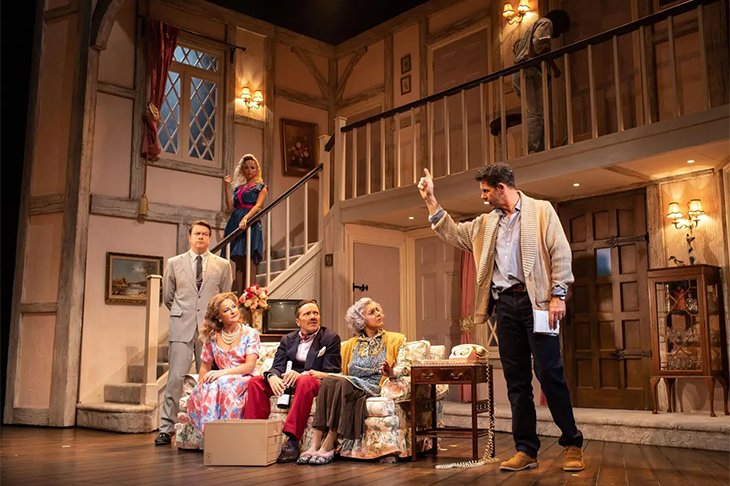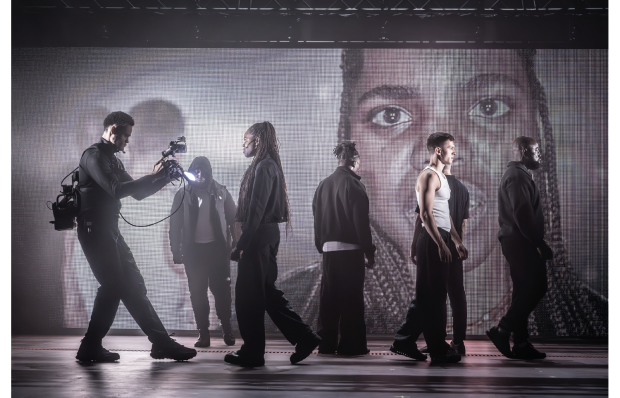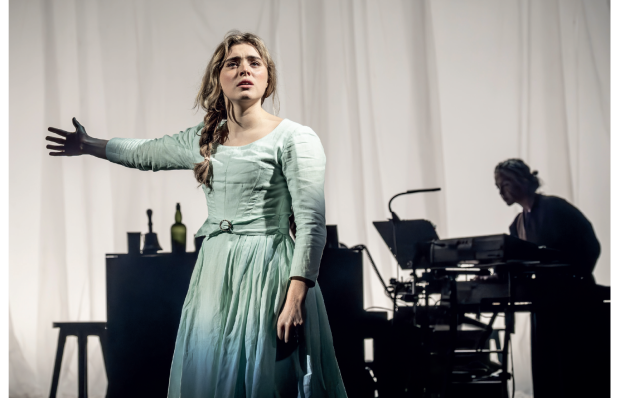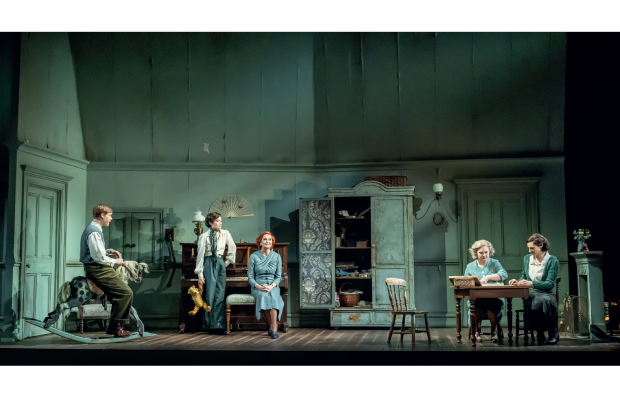Michael Frayn’s backstage comedy, Noises Off, is the theatre’s answer to Trooping the Colour. Everyone agrees that it’s an amazing display of synchronised choreography but does anyone actually want to see it? Yes, to judge by the press-night crowd at the Garrick. The joint was packed.
The show opens at the dress rehearsal of a bedroom farce where an incompetent actress, Dotty Otley, is listening to advice from an exhausted but infinitely patient director.
Already a subscriber? Log in
Subscribe for just $2 a week
Try a month of The Spectator Australia absolutely free and without commitment. Not only that but – if you choose to continue – you’ll pay just $2 a week for your first year.
- Unlimited access to spectator.com.au and app
- The weekly edition on the Spectator Australia app
- Spectator podcasts and newsletters
- Full access to spectator.co.uk
Or
Unlock this article
You might disagree with half of it, but you’ll enjoy reading all of it. Try your first month for free, then just $2 a week for the remainder of your first year.














Comments
Don't miss out
Join the conversation with other Spectator Australia readers. Subscribe to leave a comment.
SUBSCRIBEAlready a subscriber? Log in